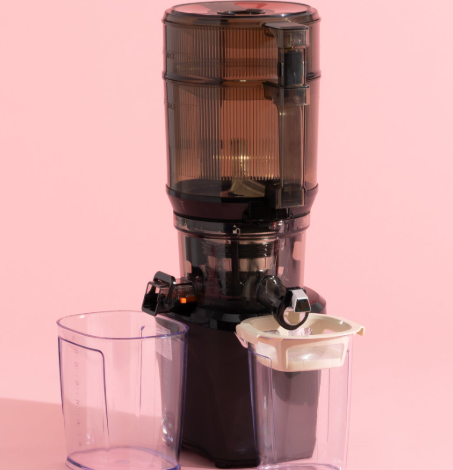
How to Reduce Inflammation: Your Complete Guide to Living an Anti-Inflammatory Life
If you’ve been hearing more about inflammation lately, you’re not alone. Chronic inflammation is a hot topic because it’s connected to numerous health problems and can even accelerate aging. As someone who’s worked hard to improve my health and combat inflammation, I can confidently say that making a few lifestyle changes can significantly reduce inflammation. Let’s dive into how you can start reducing inflammation today.
5 Easy Steps to Reduce Inflammation
1. Embrace Whole, Plant-Based, Nutrient-Rich Foods
Certain foods, especially processed ones, can trigger inflammation in the body. These include items high in refined sugar, trans fats, and animal products. A simple strategy for fighting inflammation is to add anti-inflammatory foods to your diet before cutting anything out. Fill your meals with nutrient-dense, plant-based foods like:
- Dark leafy greens
- Tomatoes
- Berries, especially cherries
- Olive oil
- Hemp seeds
- Flax oil
- Turmeric (specifically curcumin)
- Ginger
- Green tea
These ingredients are packed with vitamins, minerals, antioxidants, fiber, and anti-inflammatory compounds that help reduce inflammation and improve overall health.
One study, the PREDIMED study, highlighted how a Mediterranean diet, rich in plant-based foods, significantly reduced inflammation and risk factors for heart disease. Adopting this diet is a simple and effective way to reduce inflammation.
You can also try some of my favorite anti-inflammatory recipes:
- Turmeric Milk
- Antioxidant Boost Smoothie
- Tomatoes & Herbs
- Crazy Sexy Kale Salad
Staying hydrated is just as important, so drink plenty of water to prevent and reduce inflammation.
2. Focus on Gut Health
Did you know that around 60-70% of your immune system is housed in your gut? If your gut is in poor condition, it can trigger widespread inflammation throughout your body. A great way to start improving your gut health is by incorporating probiotics into your daily routine. Here are a few of my top recommendations:
- FloraMend Prime Probiotic by Thorne Research
- Jarro-Dophilus EPS by Jarro Formulas
- Ultimate Flora by Renew Life
If you struggle with bloating, gas, or other digestive issues, consider adding digestive enzymes to your meals. These can help you absorb more nutrients from your food and improve your gut’s ability to fight inflammation.
Another condition to be aware of is leaky gut syndrome, where your intestinal lining becomes damaged, allowing harmful substances to leak into your bloodstream. If you suspect you have leaky gut, a test with your doctor can help confirm it.
3. Find an Integrative Doctor Who Understands Inflammation
A key part of managing chronic inflammation is having a doctor who takes a holistic approach to health. An integrative MD will evaluate your lifestyle, habits, and potential inflammation triggers. Some common culprits include:
- Food Sensitivities: Common problem foods such as gluten, dairy, soy, eggs, and yeast can wreak havoc on your immune system. If you suspect a food sensitivity, pay attention to how certain foods make you feel. If symptoms persist, consider an elimination diet or blood tests under your doctor’s guidance.
- Chronic Infections: Sometimes, bacteria, viruses, or yeast can go unnoticed in your body, causing chronic inflammation. Your doctor may recommend tests like blood work or stool samples to look for hidden infections.
4. Prioritize Rest and Stress Management
Your body needs adequate rest to repair and rejuvenate itself. Most doctors recommend getting 7–8 hours of sleep each night. Poor sleep puts extra strain on your immune system, leading to higher levels of inflammation.
Stress is another major factor that exacerbates inflammation. When you’re stressed, your body releases cortisol, which is a hormone that encourages inflammation. You can reduce inflammation by:
- Getting more sleep
- Practicing relaxation techniques such as yoga or meditation
- Taking walks
- Reducing screen time or taking a break from technology
- Going on a well-deserved vacation
Taking time to relax is crucial for both physical and mental health. Don’t neglect your need for downtime.
5. Cut Down on Toxins
Toxins in your food, home, and personal care products can trigger inflammation. While you don’t have to completely overhaul your life, making small changes can help. Start by:
- Choosing organic produce when possible. The Environmental Working Group’s (EWG) Dirty Dozen and Clean Fifteen lists can help you prioritize which foods to buy organic and which are okay to buy conventionally grown.
- Using non-toxic personal care products: EWG’s Skin Deep database provides a comprehensive list of safe beauty products, so you can swap out harmful cosmetics and skincare items.
- Switching to natural cleaning products: You can find many options that don’t contain toxic chemicals that could irritate your skin and trigger inflammation.
Small changes add up, so start with what’s most manageable for you and gradually move toward reducing toxins in your life.
What Is Inflammation?
Acute Inflammation
Acute inflammation is a natural immune response to injury or infection. For example, if you cut yourself, your body responds with swelling and redness as it sends white blood cells to repair the tissue. This type of inflammation is necessary and beneficial.
Chronic Inflammation
Chronic inflammation, on the other hand, is when your immune system becomes overactive and confused. It starts attacking healthy cells, tissues, and organs, contributing to diseases such as:
- Autoimmune disorders
- Heart disease
- Asthma
- Arthritis
- IBS
- Cancer
- Premature aging
Chronic inflammation is typically caused by a combination of poor diet, stress, toxins, lack of exercise, and other factors. Unfortunately, many treatments for chronic inflammation focus on managing symptoms with medications, rather than addressing the root causes.
The Dangers of Chronic Inflammation
Chronic inflammation can slowly damage your body, making it more susceptible to long-term health issues like heart disease, arthritis, and cancer. Rather than relying solely on medications that may only mask symptoms, it’s essential to focus on lifestyle changes that tackle inflammation from the inside out.
Conclusion
Reducing inflammation doesn’t require drastic changes. By adopting an anti-inflammatory diet, improving gut health, managing stress, and reducing toxins, you can significantly reduce chronic inflammation. Start with small changes and gradually build healthier habits. Your body—and your future self—will thank you for it.






